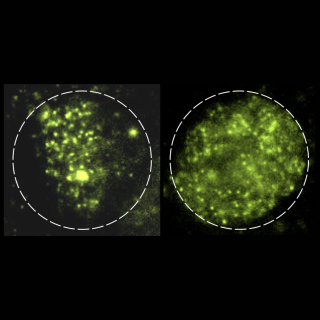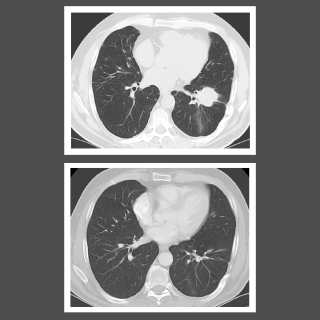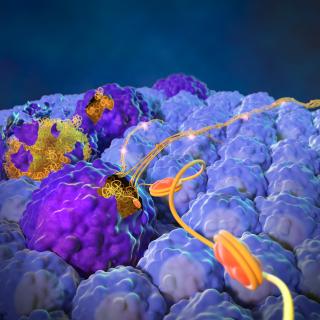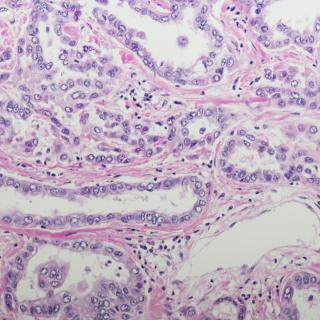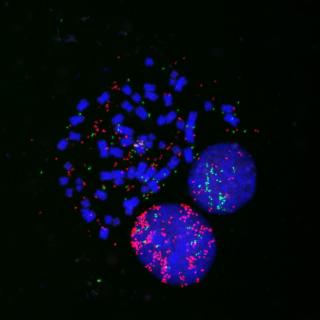Our Discoveries
Cells’ decision to divide is reversible
Surprising findings show that cells that are preparing to divide can return to a resting state if they lose growth signals, even after they have passed what was previously thought to be a point of no return.
Read MoreDrug combination provides a one-two punch attack against colorectal cancer
Researchers have identified a drug that, when combined with TOP1 inhibitors, results in improved efficacy in human colorectal cancer models — a finding that may apply to other cancers treated with TOP1 inhibitors. The results also yield important insights into our basic understanding of DNA replication and repair.
Read MoreTargeting sugar-molecule tags to proteins in the treatment of aggressive lymphomas
CCR researchers, led by Louis M. Staudt, M.D., Ph.D., have discovered a novel approach to treating diffuse large B-cell lymphoma with potentially fewer treatment-related side effects. Their work identifies and exploits the role of sugar-molecule modifications in B-cell survival.
Read MoreWith new database, NCATS data is poised to support development of precision cancer therapies
Data from thousands of compounds and nearly 200 cancer cell lines screened at the National Center for Advancing Translational Sciences are available through a new CellMiner database.
Read MoreHow immunotherapy before surgery boosts systemic immunity in head and neck cancer
Some evidence suggests that immunotherapy before surgery to remove head and neck tumors can decrease the chances of cancer recurrence, but the reasons for this observation are unknown. New research details how the treatment regimen boosts the number and dispersion of tumor-fighting immune cells throughout the body.
Read MoreNIH study finds that immunotherapy substantially increases survival of people with lymphomatoid granulomatosis
Results from a clinical trial conducted by CCR researchers show that people with low-grade lymphomatoid granulomatosis who are treated with interferon-alpha, a type of immunotherapy, can live for decades after diagnosis. Lymphomatoid granulomatosis is a rare precancerous condition triggered by Epstein-Barr virus infection. The findings suggest that immunotherapy can prevent the progression of low-grade disease to high-grade disease, which has a poorer prognosis and can quickly turn into an aggressive and fatal B-cell lymphoma.
Read MoreSignals released from dying cancer cells accelerate metastatic tumor growth
The final act of a dying cancer cell may be to spur the growth of other cancer cells.
Read MoreResearchers discover the multiple shapes of RNA, a boon for drug design
Using atomic force microscopy, CCR researchers directly observed individual RNA structures in cell-like conditions. They found that one primary RNA sequence can fold into many different conformations, which has important implications for the fundamental understanding of RNA and RNA-targeted drug design.
Read MoreA rare look into what makes mesothelioma aggressive, and potentially treatable
Scientists have a limited understanding of mesothelioma and how to treat it effectively, but that’s beginning to change. In a novel study, CCR researchers identified a 48-gene signature associated with a worse prognosis – but also identified a subset of patients who respond to certain immunotherapy and chemotherapy drugs.
Read MoreExtrachromosomal DNA promotes aggressiveness of small cell lung cancer
Cancers harboring small particles of DNA that exist outside of chromosomes, called extrachromosomal DNA (ecDNA), are associated with aggressive tumor growth, drug resistance, and shorter patient survival. New research shows that ecDNAs in small cell lung cancer contribute to variability between cancer cells, allowing them to rapidly evolve and leading to these undesirable outcomes.
Read More
